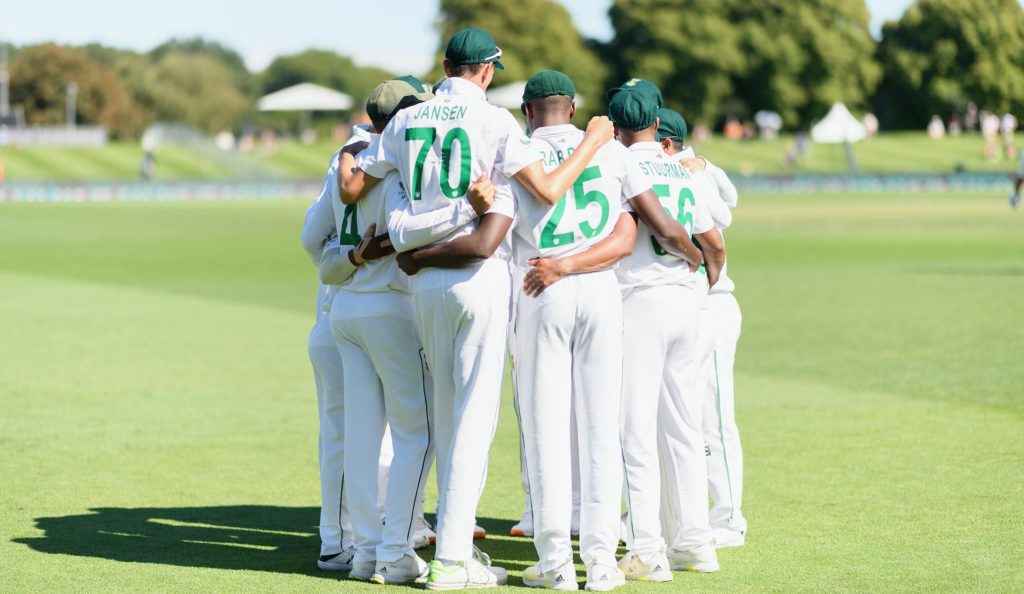South Africa will send an understrength team to New Zealand for two Tests in February, following the release on Tuesday of the fixtures for its domestic SA20 franchise competition.
CSA chief executive Pholetsi Moseki confirmed to AFP on Tuesday that no players contracted to the six SA20 franchises would travel to New Zealand.
The SA20 will start on 10 January and finish on 10 February, overlapping with the Tests which begin on 4 February and 13 February.
The clash of fixtures effectively eliminates most of South Africa’s first-choice players with the exception of former captain Dean Elgar, who was not contracted for the first edition of the T20 competition earlier this year.
Several leading players have been pre-contracted and an auction on 27 September is expected to mop up most of the rest, including likely second-choice or even third-choice players.
“It is a directive of Cricket South Africa,” said Moseki, adding that the ruling would also apply to players whose involvement ended at the conclusion of the league phase of the SA20, which ends on 4 February.
“Because of the time zones, players need at least a week to acclimatise in New Zealand so it will not be possible for some SA20 players to join the team for at least the second Test,” he said.
CSA tried to negotiate a postponement of the Tests but this was rejected by New Zealand Cricket.
The decision is another blow for Test cricket in South Africa, with the majority of future series restricted to two matches, including a high-profile home series against India in December and January – the only home Tests of the South African summer.
Moseki said at the announcement of the ICC’s future tours programme last year that South Africa’s reduced Test schedule was necessary in order to accommodate the SA20 in a prime part of the season.
But Moletsi said he was confident that South Africa would send a competitive team to New Zealand. “I have faith in our pipeline,” he said.
Elgar bemoaned the situation in a newspaper interview last month. “It’s tough to take,” he said.
“It shows what the narrative is when it comes to Test cricket and again it’s the players who suffer. A high percentage of the players still really want to play Test cricket.”
© Agence France-Presse







